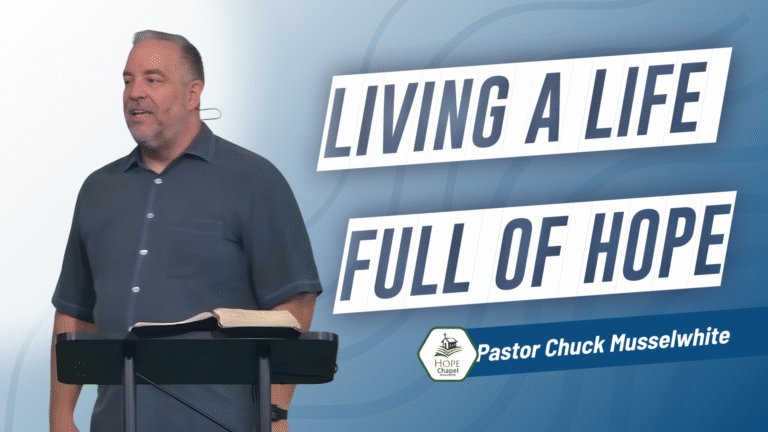The Book of James offers practical wisdom for daily Christian living. Written by Jesus’s half-brother who became the pastor of the Jerusalem church after Christ’s resurrection, James provides straightforward guidance on how to live faithfully. His letter focuses on becoming steadfast—a quality that combines patient endurance with reliable faithfulness.
What Does It Mean to Be Steadfast in Faith?
Steadfastness appears 219 times in the ESV translation of the Bible, sometimes translated as patience, endurance, or perseverance. At its core, being steadfast means to “endure patiently” while remaining reliable, faithful, and true to the end. James, like Paul in 1 Corinthians 15:58, emphasizes this quality as essential for spiritual maturity.
The ultimate goal of steadfastness is completeness in faith. As James writes in verses 3-4: “For you know that the testing of your faith produces steadfastness, and let steadfastness have its full effect, that you may be perfect and complete, lacking in nothing.”
How Do Trials Produce Steadfastness?
James begins with a challenging statement: “Count it all joy, my brothers, when you meet trials of various kinds” (James 1:2). This doesn’t mean we should feel happy during difficult times—that would be contradictory to human experience. Rather, we can have joy because we understand what trials produce in us.
Notice James doesn’t say “if” you encounter trials but “when.” Trials are inevitable in every believer’s life, and often the stronger our faith becomes, the more difficult our trials may be. The joy comes not from the trial itself but from knowing that:
- Trials test our faith
- Testing produces steadfastness
- Steadfastness leads to completeness
When facing trials, our prayer shouldn’t be “God, remove this trial” but rather “God, produce steadfastness in me through this trial.” Many people crumble under pressure, but God uses these challenges to make us complete in our faith.
How Does Wisdom Help Us Become Steadfast?
James offers another path to steadfastness: “If any of you lacks wisdom, let him ask God, who gives generously to all without reproach, and it will be given him” (James 1:5).
Wisdom helps us become steadfast by preventing many unnecessary trials. Let’s be honest—many of our trials result from poor decisions. While we often blame the devil, many difficulties are simply consequences of our choices. Wisdom allows us to make better decisions, making us more reliable and steadfast.
The beautiful promise is that God gives wisdom “generously”—literally meaning He gives double what we ask for. God delights in flooding us with wisdom when we sincerely ask. As Solomon wrote in Proverbs, “If you seek it like silver and search for it as hidden treasures…the Lord gives wisdom.”
However, wisdom only works when we act on it. Having knowledge without application isn’t wisdom—it’s just information. Wisdom becomes real when we put it into practice.
What Prevents Us from Being Steadfast?
1. Doubt
“But let him ask in faith, with no doubting, for the one who doubts is like a wave of the sea that is driven and tossed by the wind” (James 1:6).
Doubt makes us second-guess ourselves and prevents wisdom from working. People battling doubt are tossed back and forth like a raging sea—they know what’s right but hesitate to act. Satan’s greatest tactic is sowing seeds of doubt, making us double-minded and unstable. Doubting people aren’t patient or reliable, which undermines steadfastness.
2. Chasing Riches
“Let the lowly brother boast in his exaltation, and the rich in his humiliation, because like a flower of the grass he will pass away” (James 1:9-10).
The pursuit of wealth can undermine our steadfastness. There’s a difference between becoming wealthy and chasing riches—many poor people chase wealth while some wealthy people don’t. James encourages poor believers to rejoice when God provides (exaltation) and wealthy believers to rejoice when trials humble them (humiliation).
The love of money—not money itself—is the root of evil because it infects our hearts. Wealthy people often struggle with pride, thinking they’re right because of their money. James reminds us that riches are temporary, and many die before achieving what they wanted. We should view wealth as God’s gift to steward well, not as our ultimate pursuit.
3. Giving in to Temptation
“Blessed is the man who remains steadfast under trial, for when he has stood the test, he will receive the crown of life, which God has promised to those who love him” (James 1:12).
Steadfastness brings blessing—not just happiness but being fortunate because of circumstances and possessing God’s favor. Everyone faces temptation, often multiple times daily, and steadfastness helps us endure.
James clarifies that God never tempts us: “Let no one say when he is tempted, ‘I am being tempted by God,’ for God cannot be tempted with evil, and he himself tempts no one” (James 1:13). Instead, “each person is tempted when he is lured and enticed by his own desire” (James 1:14).
The root of temptation comes from our own desires. When we give in, desire conceives sin, and sin brings forth death. This destructive pattern emphasizes why we need steadfastness—to overcome the desires that could destroy us.
Life Application
Becoming steadfast requires recognizing that trials and temptations serve a purpose in our spiritual growth. Rather than resisting or resenting them, we can view them as opportunities to develop patience and reliability in our faith.
This week, consider these questions:
- What trial am I currently facing, and how might God be using it to develop steadfastness in me?
- In what areas do I need to ask God for wisdom rather than relying on my own understanding?
- What desires in my heart make me vulnerable to temptation, and how can I surrender them to God?
- Where have I allowed doubt, the pursuit of wealth, or temptation to undermine my steadfastness?
Challenge yourself to respond differently to trials this week. Instead of praying for the trial to end, pray for the steadfastness to endure it faithfully. Ask God for wisdom daily, and act on the wisdom He provides. Remember that the goal is completeness in Christ—”perfect and complete, lacking in nothing.”



